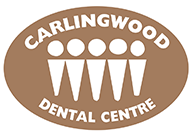It’s not just negligence that causes dental problems - your genetics can play a big role as well. Experts believe that the health and condition of your teeth is usually the result of both dental hygiene and certain genes. Even those who brush regularly, floss, and see their dentist for regular maintenance can still end up with oral health issues. And while this may seem like a reason to hang up your toothbrush, that would only result in higher chances of ending up with oral diseases. So instead, let’s take a look at dental health and genetics, what issues are often linked to family genes, and how you can get ahead of them.
Tooth Decay
Certain variations of genes have been linked to a noticeably higher risk of tooth decay and cavities. Scientists have also found that gene variants can determine your sweet preference, and those with a stronger preference for sweet foods are more likely to develop tooth decay. In others, their risk for tooth decay comes down to their enamel. Some people have softer enamel that makes it easier for bacteria to attack the teeth, creating cavities. And your body’s immune response to the communities of bacteria on your tongue and mouth can also result in susceptibilities to tooth decay. So, if tooth decay is common in your family, make sure you take extra care to floss regularly and visit your dentist often.
Gum Disease
Periodontal Disease, commonly known as Gum Disease, has also been linked to genetics. If gum disease is a problem that your family members have experienced, you will want to keep an eye on any potential inflamed or sensitive gums and seek dental care if suspected.
Crooked Teeth
Your genetics play a significant role in the formation of your jaw. Those with family members that have common misalignment issues like crowding, overbites, and gaps, have a higher chance of also developing similar oral problems. If you have children showing signs of misaligned teeth, seek orthodontic treatment promptly. Luckily, if caught early enough, there is a chance that the patient will be able to develop properly aligned bones and teeth with treatment.
Congenitally Missing Teeth
This hereditary condition, clinically known as Anodontia/Hypodontia, involves the absence of permanent teeth that do not develop. The main signs are gaps that are left between teeth after the baby teeth have fallen out and the development of permanent teeth has started. An X-Ray examination by your dentist is needed for proper diagnosis, so don’t delay seeing your dentist if your child shows signs of missing teeth. Treatment options are available such as braces, dental implants or dentures.
Cleft Lip, Cleft Palate or Both
A common genetic factor in Asian, Latino and Native American families, these birth defects happen when the tissues that are present throughout the face and mouth don’t fuse together properly. This can be passed on by the mother or father, and although not preventable, surgery options are available to fix the appearance, structure, and function.
Oral Cancer
Those who carry certain genetic markers are at greater risk of developing the disease. Lowering the risk of oral cancer can be aided by engaging in a healthy diet and avoiding cigarette smoke and excessive sugar and alcohol intake.
For more information on genetic dental conditions, talk to us at Carlingwood Dental, our professionals can help you maintain healthy teeth and a beautiful smile.


